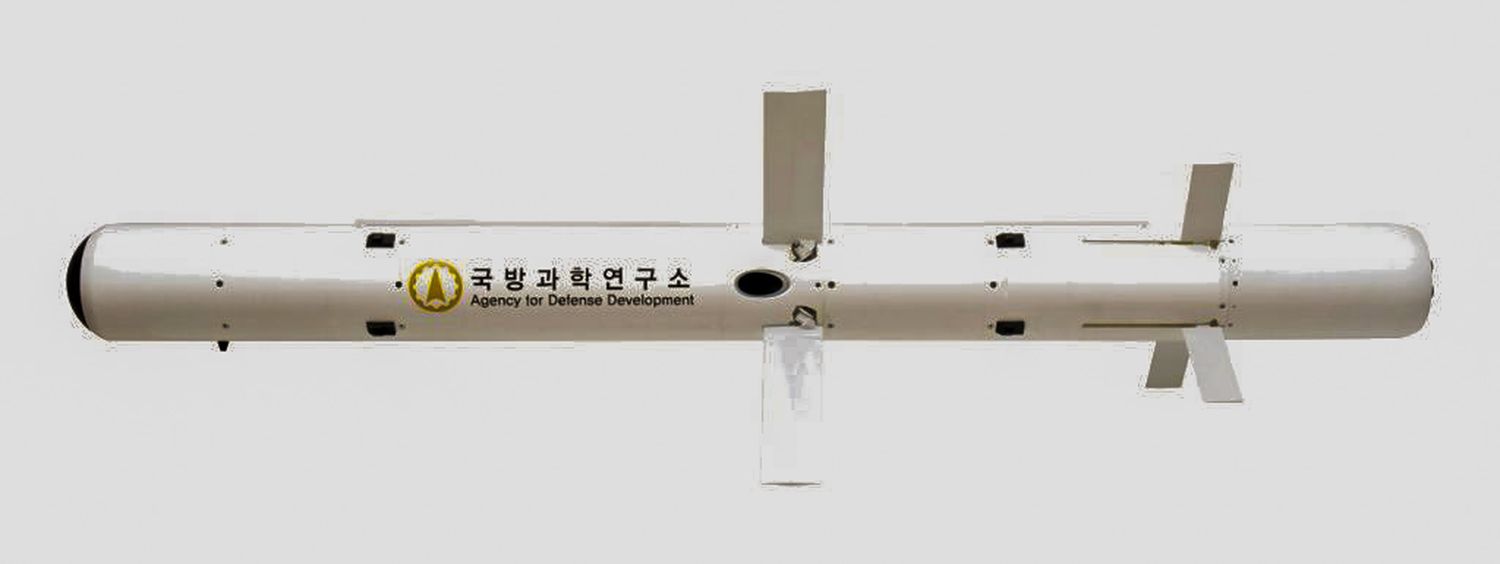South Korea’s Defense Acquisition Program Administration (DAPA) reported that the development phase of an indigenously designed anti-tank missile to equip its attack helicopters was successfully completed on December 12.
The new missile, named Cheongeom (meaning «heavenly sword» in Korean), is the result of a more than seven-year (and USD138 millions) development program aimed at developing a domestic munition to equip future Korean combat helicopters.
As reported by DAPA, the Cheongeom’s performance in terms of accuracy, range and penetrating power is equivalent to or better than that of similar foreign weapon systems. The report mentions that the warhead’s armor-penetrating capability is equivalent to that of the U.S. Hellfire II missile.
This anti-tank missile features a dual guidance system (visible light/infrared imaging) that allows target detection in all weather conditions. The weapon can be operated in «fire-and-forget» or «fire-and-update» mode, in which the gunner can re-designate another target when the missile is in flight, thanks to a cable data link.
In addition, the missile uses artificial intelligence (AI) algorithms and has more than 800,000 frames of target images in its memory, allowing it to lock on to targets automatically, without operator intervention, if necessary. Thanks to this capability, it is expected to increase the helicopter’s hit rate and survivability by shortening its exposure or uncovered time.
Initially, the Cheongeom will be integrated into the light armed helicopter (LAH), of which some 210 units are expected to be produced from 2023 for the Army and into the future Korean amphibious assault helicopter for the Marine Corps.
But there are also plans to develop the Cheongeom to allow it to incorporate a diversity of combat warheads, and to be fired from ground platforms, such as armored vehicles and tactical vehicles.
To meet future threats, the Cheongeom will evolve, increasing its range, incorporating a wireless data link and advancing the use of artificial intelligence.


Comentarios
Para comentar, debés estar registrado
Por favor, iniciá sesión